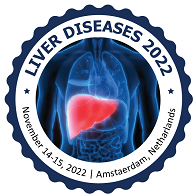
Negar Rezaei
Tehran University of Medical Sciences, Tehran, Iran
Title: Quality of Care Index (QCI) for Liver Cancer; Global, Regional, and National Trends from 1990 to 2019
Biography
Biography: Negar Rezaei
Abstract
Liver cancer (LC) is the 6th most common diagnosed cancer and ranked 4th in cancer-related deaths (1). World Health Organization has reportedly apprised health authorities of that the number of deaths due to LC will have surpassed one million by 2030 (2). Although the burden of the cancer and its underlying causes on humankind is colossal, there appear to be heterogeneities in coping approaches, and the implementation of current professional knowledge to achieve desired health outcomes has not been fruitful (3). The aim of this study was to assess the quality of care of liver cancer and its underlying conditions in global, regional, and national levels from 1990 to 2019. Data of incidence, prevalence, death, and disability-adjusted-life-years (DALYs) of LC and underlying causes including Hepatitis-B-Virus (HBV), Hepatitis-C-Virus (HCV), alcohol use, non-alcoholic-steatohepatitis (NASH), and other causes were obtained from Global Burden of Diseases study 2019. Principal-Component-Analysis was applied in order to combine age- standardized mortality-to-incidence-ratio, disability-adjusted-life-years-to-prevalence-ratio, prevalence-to-incidence-ratio, and years-of-life-lost-to-years-lived-with-disability-into a single proxy named Quality-of-Care-Index (QCI). Gender disparity ratio was used to assess the disparity in quality of care among sexes. The age-standardized QCI score of liver cancer was 55.7 in global scale in 2019. From 1990 to 2019, the QCI score of liver cancer showed constantly increasing trends. The age-standardized QCI scores were consistently highest and lowest among countries of high income (83.2 in 2019) and Sub-Saharan Africa (27.9 in 2019) super-region across the years,respectively. Japan (QCI= 100), Finland (QCI=91.6), and the Republic of Korea (QCI= 91.2) had the highest QCI scores. The global QCI scores of LC due to HBV, HCV, alcohol use, NASH, and other causes reached 53.5, 61.8, 54.3, 52.9, and 63.7, respectively in 2019. The overall age- standardized gender disparity ratio was 0.9 by 2019, suggesting a slightly better quality of care for liver cancer among males. We showed improving trends in the quality of care of LC during 1990- 2019; however, a wide gap is shown between countries regarding coping approaches. Given inequities in healthcare quality, there is an urgent need to address discrimination and bridge the gap.

